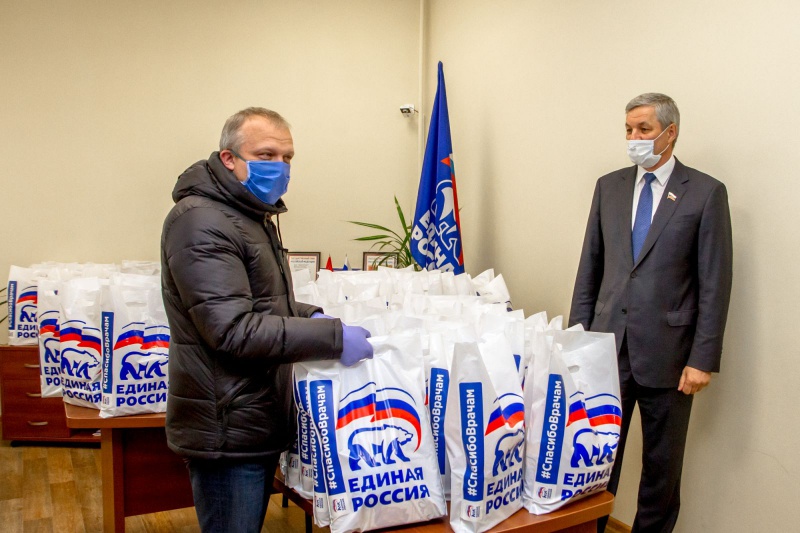Improving Cross-Border Mechanisms To Combat Transnational Crime

Table of Contents
Enhanced Law Enforcement Cooperation
Effective international collaboration is paramount in disrupting transnational criminal networks. This requires a multi-faceted approach focusing on strengthening existing agreements and improving information sharing.
Strengthening International Treaties and Agreements
Outdated or inadequate legal frameworks hinder effective prosecution of transnational crimes. Significant improvements are needed to ensure that international cooperation keeps pace with evolving criminal tactics.
- Updating extradition treaties: Existing treaties must be updated to include modern crimes like cybercrime and offenses related to intellectual property theft. The process of extradition should be streamlined to reduce delays and bureaucratic hurdles.
- Improving Mutual Legal Assistance (MLA) agreements: Faster and more efficient information sharing is crucial. MLA agreements need to be modernized to facilitate quicker access to evidence and witness testimonies across borders. Standardizing request procedures and response times is key.
- Creating standardized legal frameworks for cybercrime investigations: The decentralized and borderless nature of cyberspace necessitates international harmonization of legal definitions and investigative procedures for cybercrimes. This includes establishing clear jurisdiction guidelines and facilitating the seizure of digital assets across borders.
Harmonizing legal definitions across jurisdictions is crucial to facilitating prosecution. For example, if the definition of "money laundering" differs significantly between two countries, extradition and prosecution become significantly more complex. Successful examples, such as the numerous bilateral and multilateral agreements focusing on specific crime types, should be studied and replicated to create a more effective global response.
Improved Information Sharing and Intelligence Collaboration
Real-time information exchange is vital for effective law enforcement. This requires secure platforms and collaborative strategies.
- Establishing secure platforms for real-time information exchange: Secure, encrypted communication channels are necessary for sensitive information sharing between law enforcement agencies across borders. This could involve dedicated platforms and protocols to ensure data integrity and confidentiality.
- Developing joint investigative teams: Establishing joint task forces comprising officers from multiple countries allows for coordinated investigations, leveraging expertise and resources more effectively. This collaborative approach enables a more comprehensive response to complex transnational crimes.
- Implementing data protection protocols while maintaining effective information sharing: Striking a balance between protecting personal data and enabling effective information sharing is crucial. Robust data protection protocols must be implemented to prevent misuse of sensitive information, while simultaneously ensuring that relevant data is accessible to investigators.
Utilizing advanced technologies like data analytics and predictive policing can significantly improve intelligence gathering and analysis, allowing law enforcement agencies to anticipate criminal activities and deploy resources more effectively. Interpol and other international organizations play a pivotal role in facilitating information sharing and coordinating international responses to transnational crime.
Addressing Specific Transnational Crime Types
A targeted approach focusing on specific crime types is vital to maximizing impact. This requires tailored strategies and international collaboration.
Combating Human Trafficking and Smuggling
Human trafficking and smuggling are heinous crimes requiring a multifaceted response.
- Strengthening border controls: Improved screening procedures, enhanced technology (like biometric identification), and increased vigilance at border checkpoints can help prevent the movement of trafficked persons and smuggled goods.
- Enhancing victim protection programs: Comprehensive support programs are crucial for victims of trafficking, including providing safe housing, medical care, legal assistance, and psychological support.
- Increasing collaboration with NGOs and international organizations: NGOs and international organizations play a critical role in identifying victims, providing support, and advocating for policy changes to combat human trafficking.
- Implementing stricter penalties for traffickers: Deterrent penalties, including significant prison sentences and asset seizure, are necessary to discourage human trafficking and smuggling.
Different strategies, including addressing the root causes of vulnerability (poverty, lack of education, etc.) and providing support to victims, need to be considered. Successful initiatives should be studied and replicated to improve international responses.
Tackling Drug Trafficking and Money Laundering
Disrupting drug trafficking and money laundering requires a combined approach targeting both supply and demand.
- Improving asset recovery mechanisms: Effectively seizing and confiscating assets obtained through drug trafficking and money laundering weakens criminal organizations and disrupts their operations. International cooperation is crucial in tracking and recovering assets across borders.
- Strengthening financial regulations to prevent money laundering: Robust anti-money laundering (AML) regulations and effective enforcement are critical in preventing criminals from using the financial system to launder illicit proceeds.
- Enhancing cooperation between customs agencies and financial institutions: Close collaboration between customs agencies (to intercept drugs and related assets) and financial institutions (to monitor suspicious transactions) is crucial.
- Targeting drug production and distribution networks: Disrupting the entire supply chain, from production to distribution, is essential. This requires intelligence sharing and coordinated law enforcement operations across borders.
Financial Intelligence Units (FIUs) play a crucial role in collecting and analyzing financial data to identify and disrupt money laundering schemes. International cooperation in sharing financial intelligence is essential to track and seize assets obtained through criminal activity.
Combating Cybercrime
The borderless nature of cyberspace presents unique challenges in combating cybercrime.
- Developing international cybercrime laws: Harmonizing laws across countries is crucial to establishing clear jurisdiction and facilitating cross-border investigations and prosecutions.
- Establishing joint cybercrime task forces: Teams comprising experts from different countries can leverage expertise and resources to tackle complex cybercrime investigations.
- Improving cybersecurity infrastructure: Strengthening national cybersecurity infrastructure can help prevent cyberattacks and protect critical infrastructure.
- Enhancing cooperation between private sector and law enforcement agencies: Close collaboration between the private sector (which holds much of the relevant data) and law enforcement is crucial to investigating cybercrimes effectively.
Investigating and prosecuting cybercrimes that cross national borders requires significant international cooperation. The speed and anonymity afforded by the internet demand innovative approaches and close collaboration between nations.
Strengthening Border Security and Control
Effective border security is crucial in preventing the movement of criminals and illicit goods.
Enhancing Border Management Technologies
Technology plays a vital role in enhancing border security.
- Implementing advanced biometric technologies: Biometric technologies such as fingerprint and facial recognition can significantly improve border control efficiency and accuracy.
- Utilizing sophisticated surveillance systems: Advanced surveillance systems, such as CCTV cameras and sensor networks, can enhance detection of suspicious activities at border crossings.
- Improving risk assessment and targeting strategies: Data analysis and risk assessment tools can help border agencies to target resources effectively and identify high-risk individuals and shipments.
The implementation of these technologies must be balanced with the need to respect human rights and privacy.
Improving Cross-Border Cooperation at Border Checkpoints
Collaboration among border agencies is critical for effective border management.
- Establishing joint border control units: Joint units comprising officers from neighboring countries can enhance cooperation and information sharing.
- Implementing streamlined procedures for cross-border cooperation: Simplifying procedures and standardizing protocols can facilitate efficient information exchange and collaboration.
- Improving communication and information sharing between border agencies: Secure communication channels and shared databases can improve the effectiveness of cross-border operations.
Joint patrols and information sharing between border agencies enhance effectiveness and efficiency in detecting and preventing transnational crime.
Conclusion
Effective cross-border mechanisms are paramount to combating transnational crime effectively. Strengthening international cooperation through enhanced law enforcement partnerships, targeted strategies to address specific crime types, and improved border security are vital steps towards a safer and more secure global community. By actively engaging in collaborative efforts and adopting innovative strategies, we can significantly improve our capacity to disrupt transnational criminal networks and protect vulnerable populations. Let's continue to work towards improving cross-border mechanisms to combat transnational crime and build a more secure world.

Featured Posts
-
 Pivotal Character Killed In Elsbeth Season 2 Episode 18
May 13, 2025
Pivotal Character Killed In Elsbeth Season 2 Episode 18
May 13, 2025 -
 Local Community Protests Trumps State Of The Union Speech
May 13, 2025
Local Community Protests Trumps State Of The Union Speech
May 13, 2025 -
 Edinaya Rossiya Deputaty Gotovyat Predlozheniya Dlya Predvybornoy Programmy
May 13, 2025
Edinaya Rossiya Deputaty Gotovyat Predlozheniya Dlya Predvybornoy Programmy
May 13, 2025 -
 Optimizing Credit For Core Commodity Groups The Walleye Cuts Strategy
May 13, 2025
Optimizing Credit For Core Commodity Groups The Walleye Cuts Strategy
May 13, 2025 -
 Dooms Dark Ages Exploring The Legacy Of A Genre Defining Game
May 13, 2025
Dooms Dark Ages Exploring The Legacy Of A Genre Defining Game
May 13, 2025
